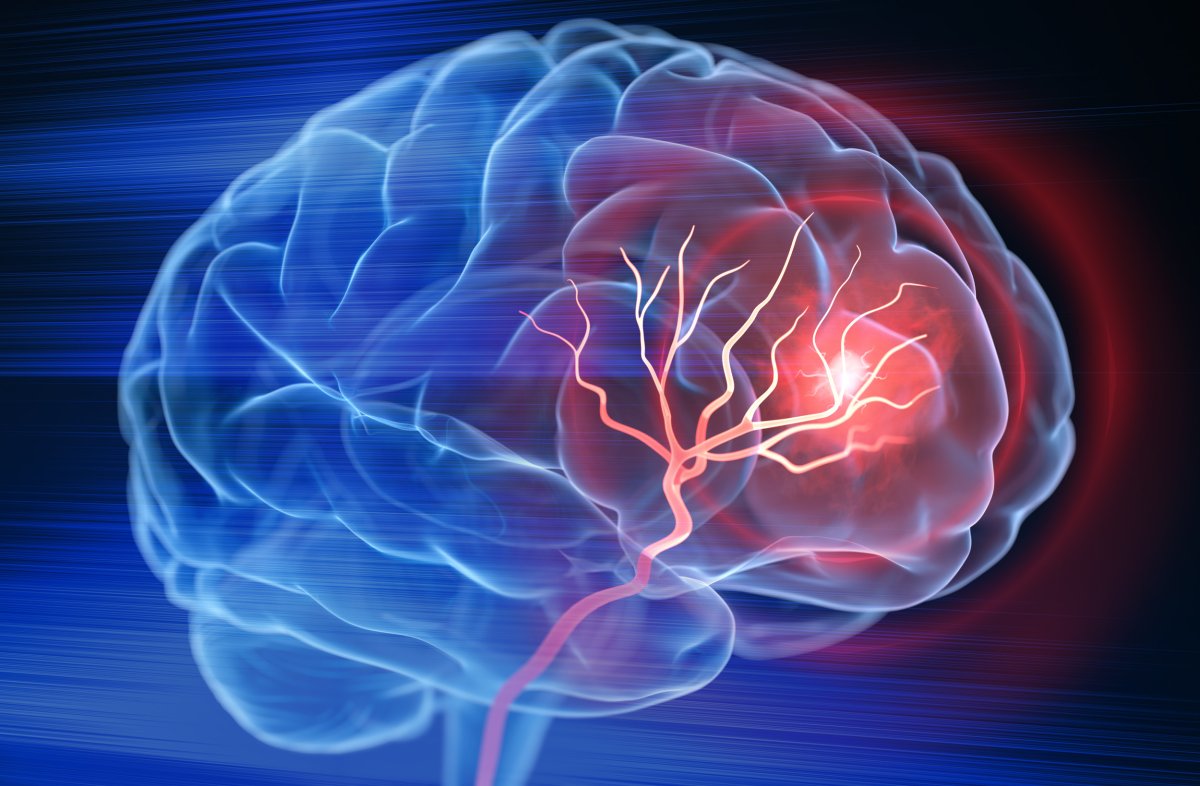In the wake of a mass shooting at a Nashville elementary school by someone police have described as a transgender ex-student, in which three children aged nine and three adults died, some people have claimed that hormone-replacement therapy could have been a driving factor for the attack.
The shooter, named Audrey Elizabeth Hale, was said by Nashville Police Chief John Drake at a press conference to be transgender, but he didn't clarify which gender Hale identified as. In online profiles, Hale used he/him pronouns and also went by the name Aiden, the New York Post reported. It is also not known whether Hale had undergone hormone replacement therapy.
Nevertheless, Marjorie Taylor Greene, a Republican representative for the state of Georgia, tweeted a statement regarding the shooting, implying that the shooter's testosterone level was a reason for the shootings.
"How much hormones like testosterone and medications for mental illness was the transgender Nashville school shooter taking?" she tweeted. "Everyone can stop blaming guns now."
How much hormones like testosterone and medications for mental illness was the transgender Nashville school shooter taking?
— Rep. Marjorie Taylor Greene🇺🇸 (@RepMTG) March 27, 2023
Everyone can stop blaming guns now.
Journalist Andy Ngô also suggested that the hormones may have contributed to the crime.
"Was the #Nashville trans mass shooter on cross-sex hormones (in this case, testosterone)? Women committing mass shootings are exceptionally rare, but if Audrey "Aiden" Hale took testosterone, it could explain part of the male-typical mass violence the Christian school tragically experienced," he tweeted.
Was the #Nashville trans mass shooter on cross-sex hormones (in this case, testosterone)? Women committing mass shootings are exceptionally rare, but if Audrey "Aiden" Hale took testosterone, it could explain part of the male-typical mass violence the Christian school tragically…
— Andy Ngô 🏳️🌈 (@MrAndyNgo) March 27, 2023
But can the impact of hormones on a person's brain really cause them to commit violent or deadly acts? The evidence is unclear.
One study published in the journal Psychoneuroendocrinology in 2016 looked into how hormone therapy for transgender people affected subcortical brain areas related to memory and emotion. The study analyzed the MRI results of 25 Female-to-Male (FtM) and 14 Male-to-Female (MtF) transgender people both before they started hormone treatment and four months into the treatment.
The results found that the hormone treatment did result in some changes to the brain: in the MtF trans people involved in the study, their taking of estradiol (artificial estrogen) and anti-androgens (testosterone blockers) was found to have reduced the volume of the hippocampus region of the brain. The hippocampus is a small part of the brain that is involved in regulating learning, memory, and spatial navigation, and also plays a role in anxiety and avoidance behaviors.

Additionally, differing progesterone levels were found to be correlated with changes in gray matter structures in MtF subjects. No effects were found in the brains of the FtM individuals.
"Our findings are also relevant for women undergoing hormone-replacement therapy and those receiving oral contraceptive treatment," co-author Rupert Lanzenberger, a psychiatry professor at the Medical University of Vienna, said in a Nature Reviews Endocrinology article discussing the findings of the study. "As oestrogen plus progestin therapy increases the risk of dementia in postmenopausal women aged [over] 65 years, our findings of pronounced decreases in the hippocampal region in response to oestradiol and anti-androgen treatment support a neurobiological underpinning of this phenomenon."
However, this study only uses a very small sample size, which means that its results are not as statistically significant or sound as an experiment that used many more results. Additionally, changes to the gray matter and hippocampus can also be triggered by yoga and meditation, or periods of stress.
While Hale wasn't confirmed as a trans man, the use of he/him pronouns on social media suggests that Hale identified as a male.

"It's not about their identity. It's the questions or this is what kind of hormones are they on? What kind of medications are they taking for mental illness? What is causing this aggression in this biological female who identifies as a male for them to go in and murder children?," Greene told the Independent in an interview regarding her tweets.
"But these are important things. It's important because what will testosterone do to a biological woman? She's taking tons of testosterone trying to make herself look like a man."
These comments do not follow the science of the Nature Reviews Endocrinology study, as there is no mention of testosterone having any effect on the brain. Additionally, the brain changes mentioned in the study are in MtF people, taking estradiol and testosterone-blockers.
However, testosterone itself has long been known to cause increased aggression in men, with one study published in the International Journal of Endocrinology and Metabolism in 2012 stating that there is some evidence that testosterone levels are higher in individuals with aggressive behavior, including violent criminals. Some other studies have found that trans men taking testosterone hormones may experience increased aggression, including a 2018 study from The Journal of Sexual Medicine and a 2021 study in Hormones and Behavior.
The Hormones and Behavior paper states that in one of three trans men taking testosterone ended up less aggressive during treatment, and that all groups had no changes in aggression at a one-year follow-up. Additionally, an article in the British Medical Journal Open published in 2020 found that aggression may increase during initiation of testosterone treatment, but will return to baseline during long-term testosterone treatment.

Overall, scientists agree that more research needs to be done to determine the relationship between aggression and testosterone for trans men.
Trans people are over four times more likely than cisgender [identifying as sex you were born as] people to experience violent victimization, including rape, sexual assault, and aggravated or simple assault, a study by the Williams Institute at UCLA School of Law found.
Biological women made up only around 3.6 percent of shootings in the U.S. between 2000 and 2017, according to the FBI, and while the data doesn't include people's gender identities, the Baltimore Sun reported in 2018 that it was "exceedingly uncommon for a transgender person to be the perpetrator of an active shooting."
"Given how few women commit mass murder, it is even more rare for a woman planning to transition to be a man to commit mass murder. This might be the first," Laura Dugan, professor and associate chair of criminology and criminal justice at the University of Maryland, told the Baltimore Sun in 2018 in response to a mass shooting by a FtM trans man. "Keep in mind that thousands of transgender males take testosterone and do not mass murder anyone."
Some 45,222 people died from gun-related injuries in the U.S. in 2020, according to the Pew Research Center, a 14 percent rise from 2019, a 25 percent increase from 2015, and a 43 percent spike from 2010.
Data from the The Gun Violence Archive shows that 513 people died from mass shootings in 2020 alone, which are defined as incidents involving at least four people being shot. Between 2011 and 2020, there were 160 mass shootings in the U.S., compared to a mere 12 between 1966 and 1975, according to the Rockefeller Institute of Government.
Do you have a tip on a science story that Newsweek should be covering? Do you have a question about gun violence? Let us know via science@newsweek.com.
References
- Batrinos ML. Testosterone and aggressive behavior in man. Int J Endocrinol Metab. 2012. https://doi.org/10.5812/ijem.3661.
- Giovanna Motta, G. et al. Does Testosterone Treatment Increase Anger Expression in a Population of Transgender Men? The Journal of Sexual Medicine, 2018, https://doi.org/10.1016/j.jsxm.2017.11.004.
- Lehmann Christensen L, Glintborg D, Taulbjerg Kristensen T, et al. Masculinising testosterone treatment and effects on preclinical cardiovascular disease, muscle strength and power, aggression, physical fitness and respiratory function in transgender men: protocol for a 10-year, prospective, observational cohort study in Denmark at the Body Identity Clinic (BIC). BMJ Open. 2020. https://doi.org/10.1136/bmjopen-2020-045714
- Tine Taulbjerg Kristensen, T. T., et al. Effects of testosterone therapy on constructs related to aggression in transgender men: A systematic review,
Hormones and Behavior, 2021. https://doi.org/10.1016/j.yhbeh.2020.104912.
Uncommon Knowledge
Newsweek is committed to challenging conventional wisdom and finding connections in the search for common ground.
Newsweek is committed to challenging conventional wisdom and finding connections in the search for common ground.
About the writer
Jess Thomson is a Newsweek Science Reporter based in London UK. Her focus is reporting on science, technology and healthcare. ... Read more
To read how Newsweek uses AI as a newsroom tool, Click here.








